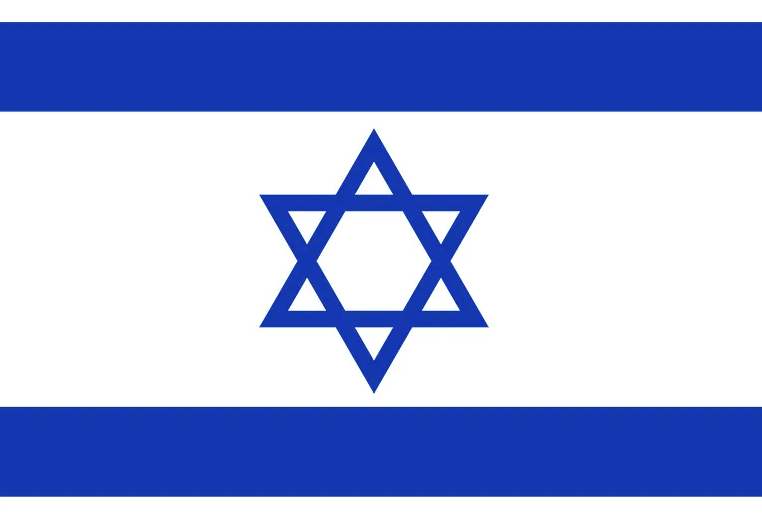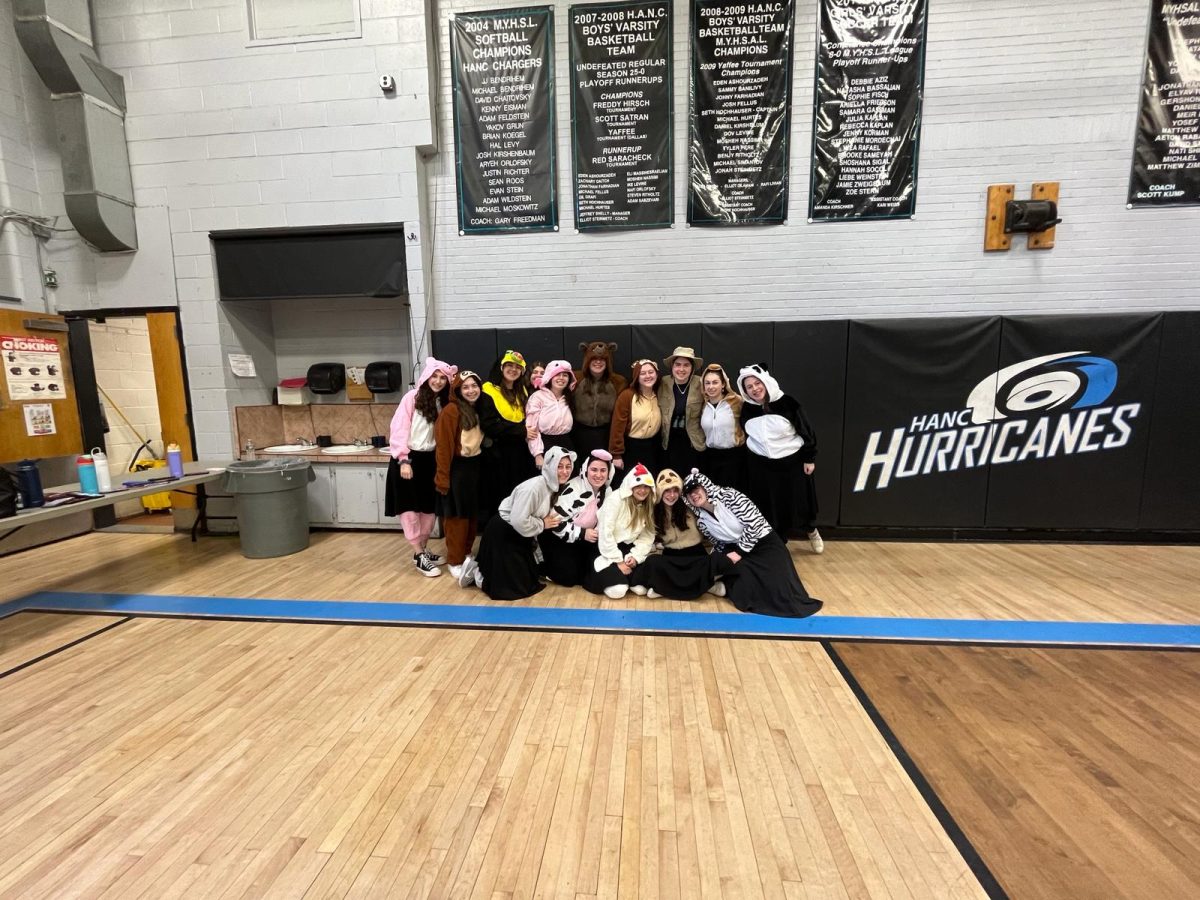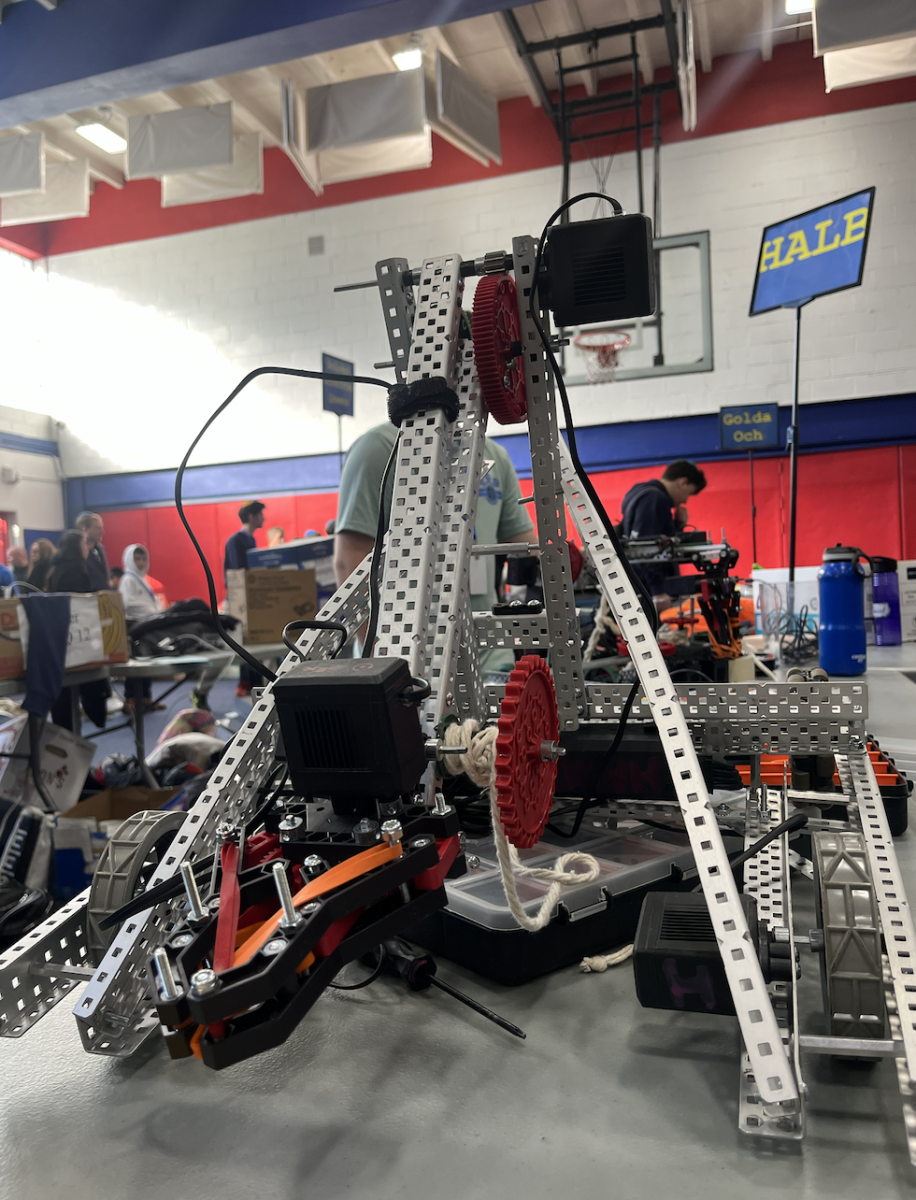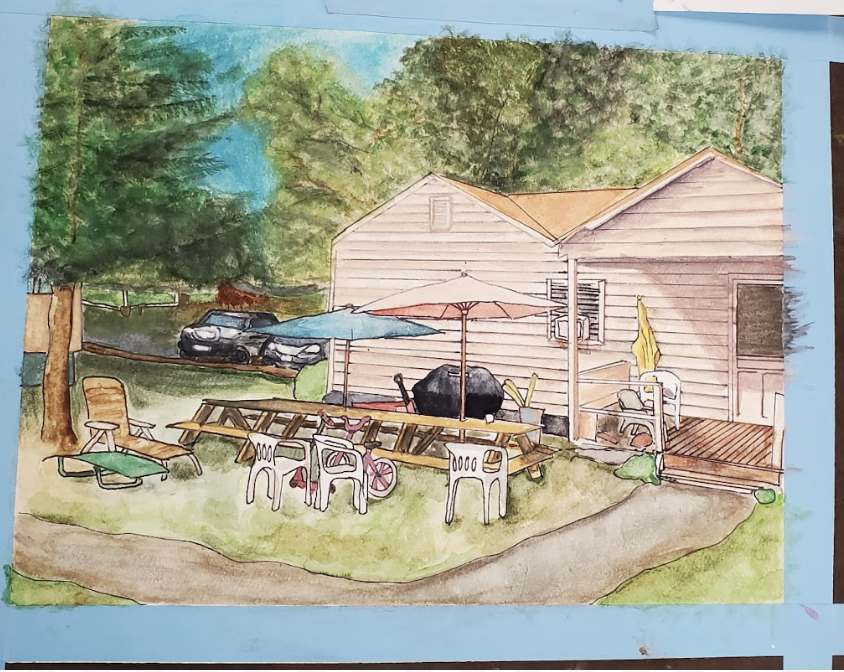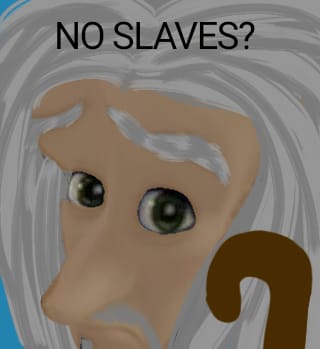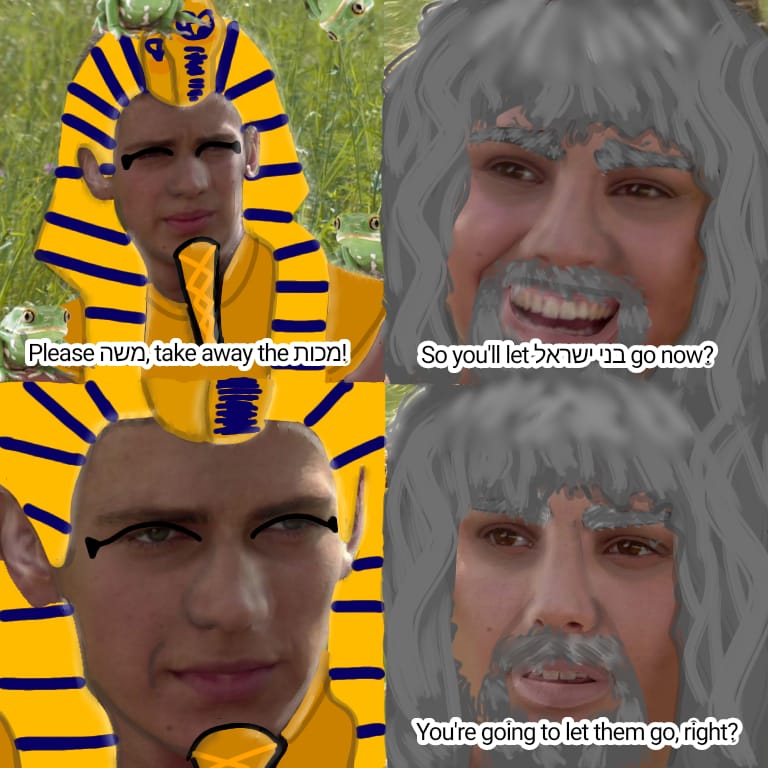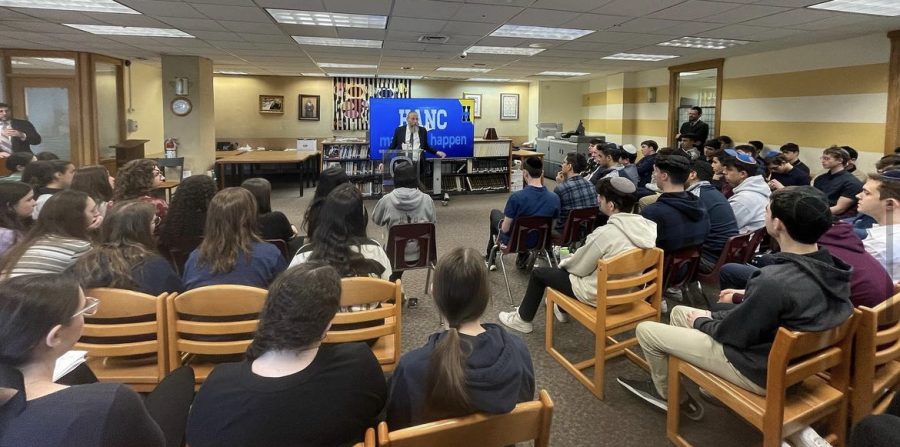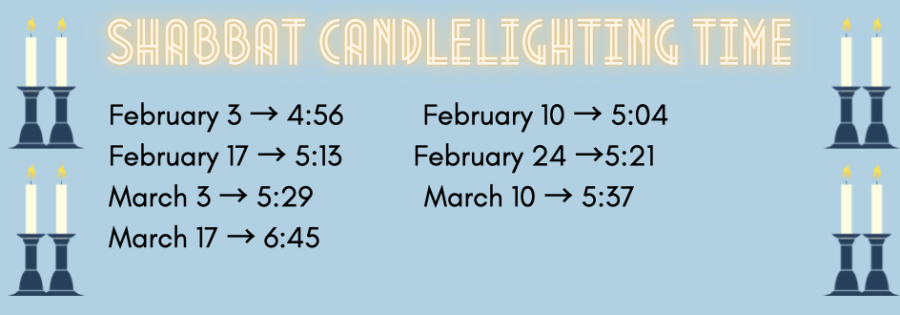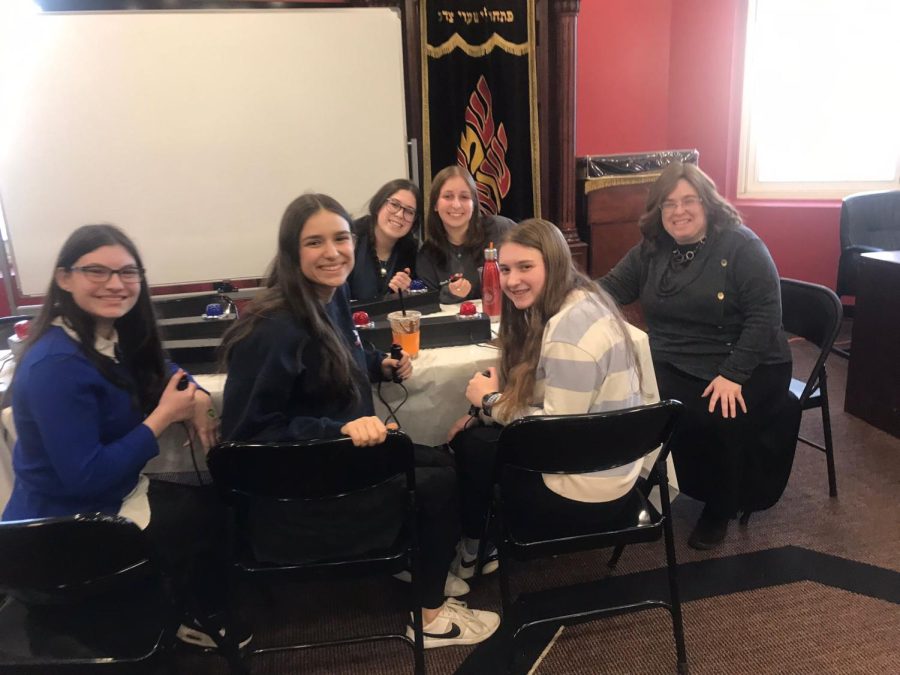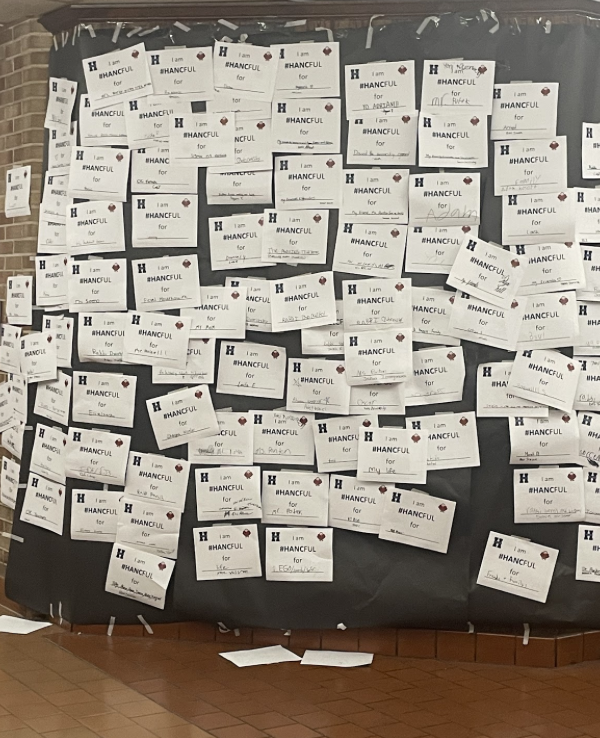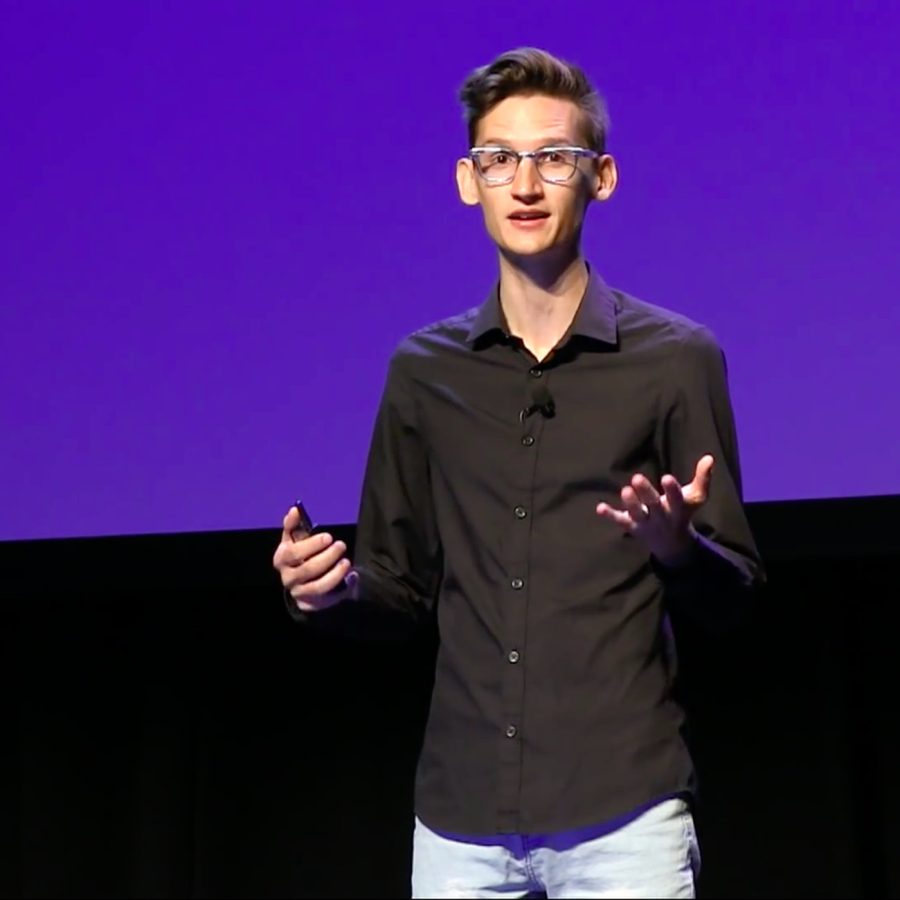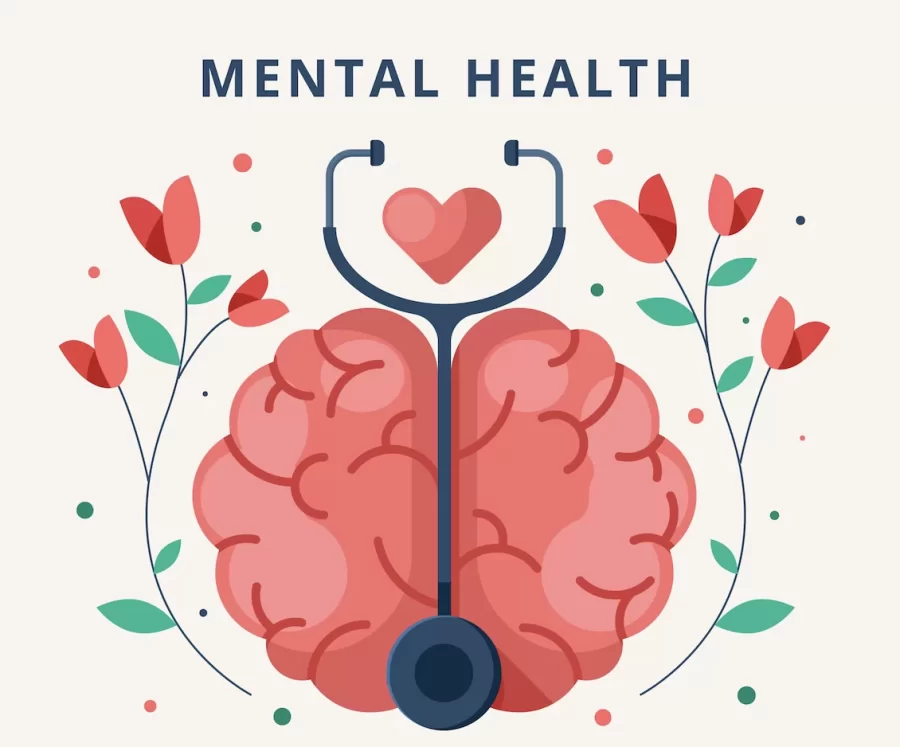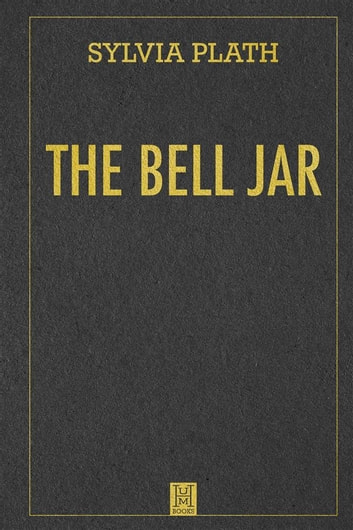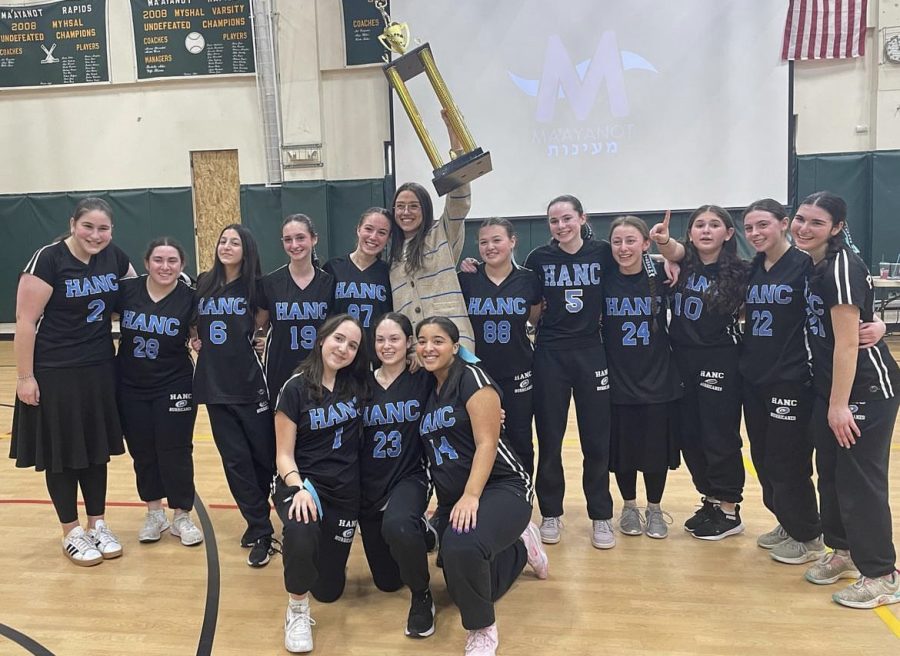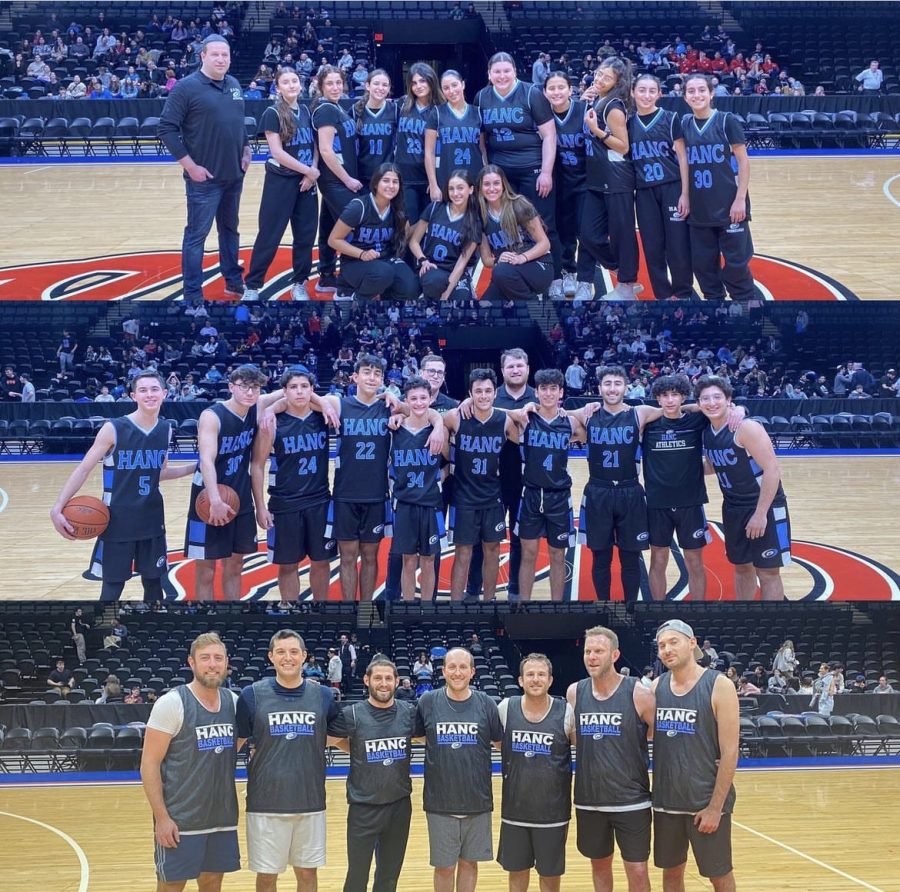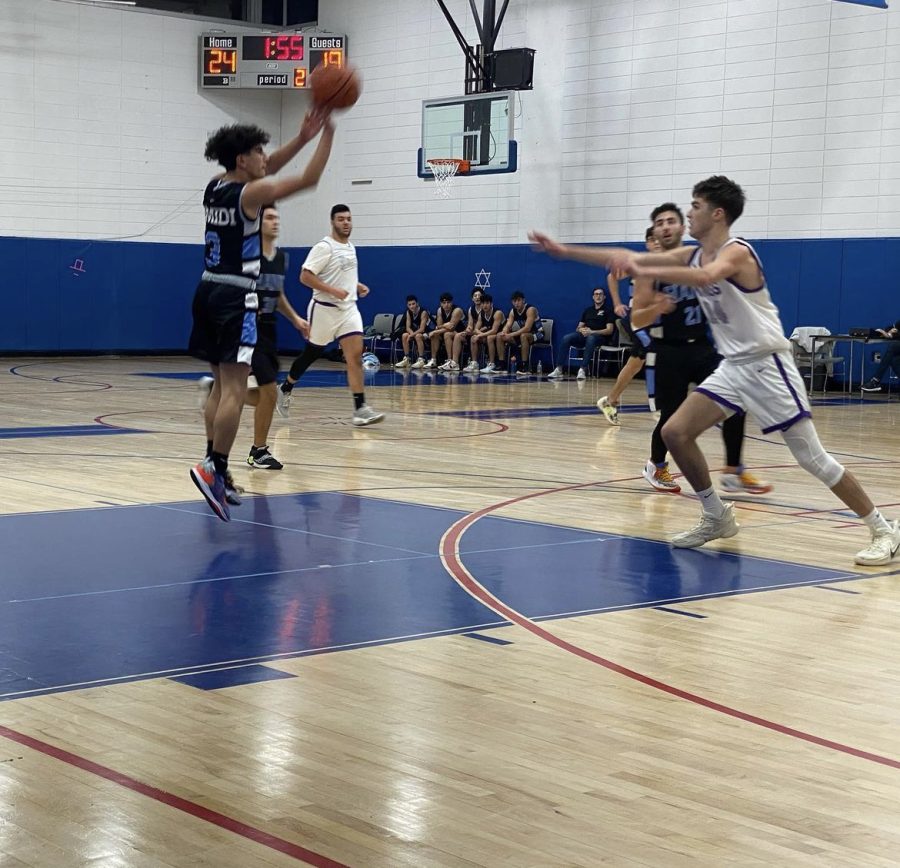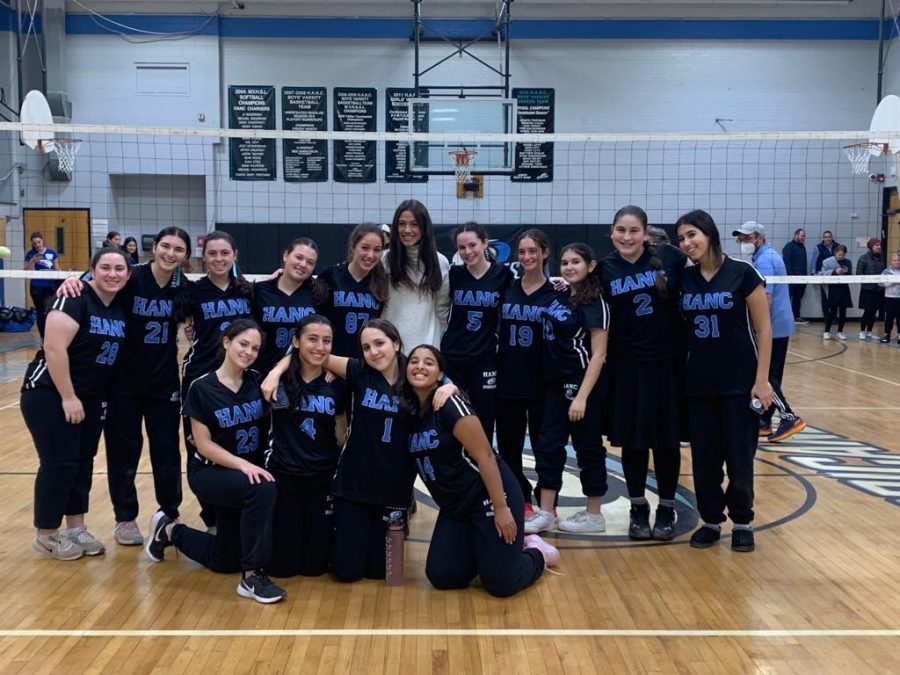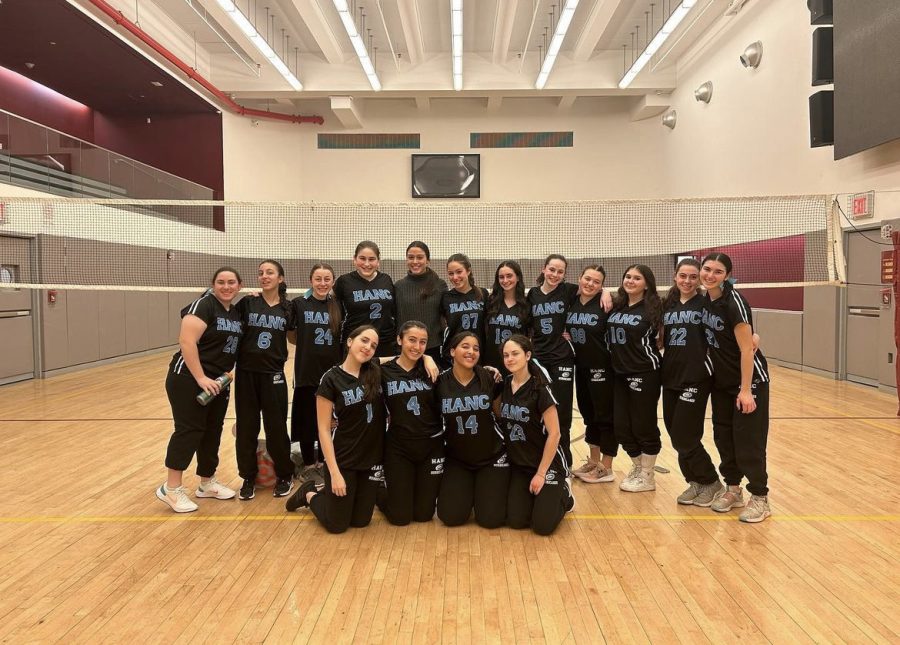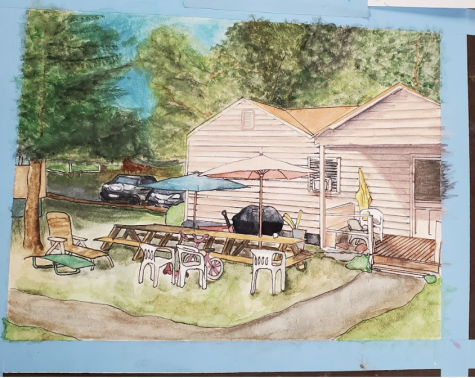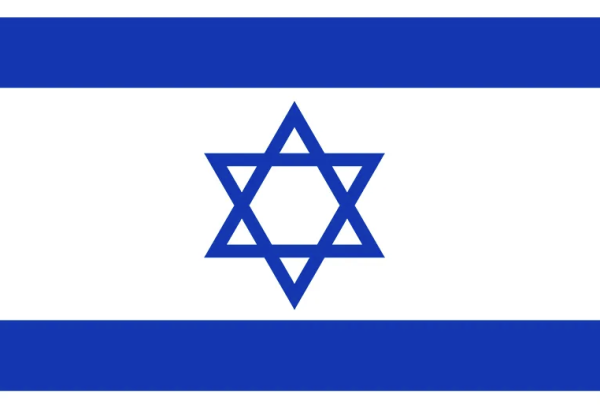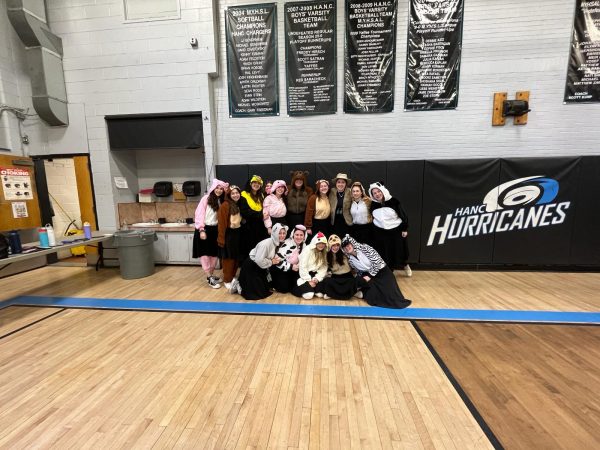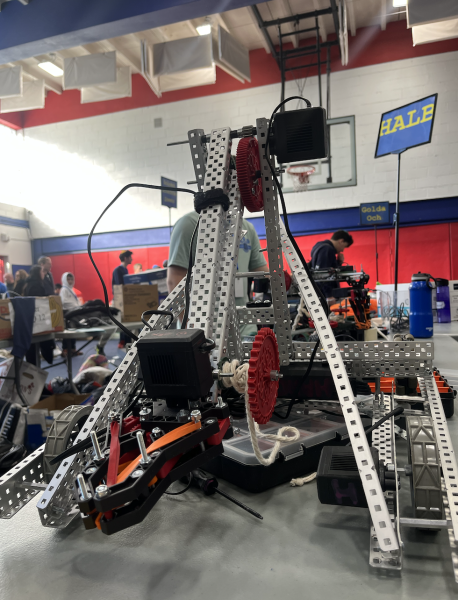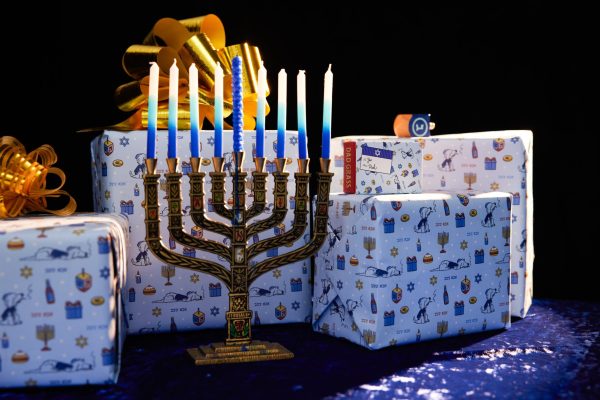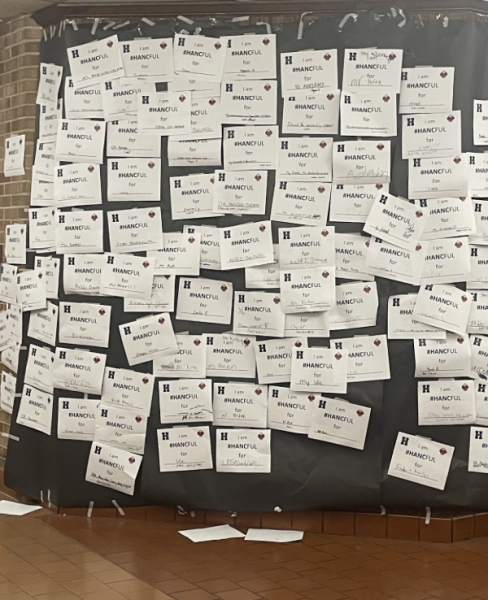Mr. Pickering: Author and English Teacher
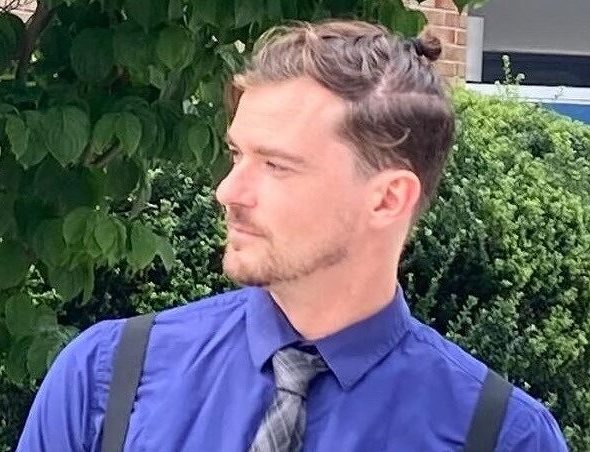
Mr. Pickering is an English teacher at HANC High School who teaches grades 9, 10, and 12. Multiple times a week, he presents his classes with a “Word of the Day” (from merriam-webster.com) as well as riddles, and he assigns journal work to help provoke classroom discussions. One fact about Mr. Pickering that some HANC students may not know is that he is an author. He has written novels including the American Rebirth Trilogy. Many of Mr. Pickering’s students are fascinated that he is an author and enjoy hearing his advice on writing. In HANC’s Creative Writing club, where he is the supervisor, Mr. Pickering helps students explore their writing passions and helps them improve their writing and storytelling skills. Sophomore Noam Traeger has interviewed him about his novels and writing.
NT: When did you first realize you wanted to write books?
MrP: Well it’s funny, recently I actually found an old composition notebook from when I was in like first or second grade and my mom showed it to me and where it said that it’s what I want to be when I grow up and it said I wanted to be a writer and illustrator, which I had no memory of doing. Apparently, the idea of being a writer was something I liked for a long time, but I didn’t really register it as something I wanted to do until I was 18. I actually took an AP Literature class myself and I had a teacher who gave us creative writing assignments and he gave us this one assignment and I just started writing. The bell rang and I didn’t stop writing and he just looked at me and was like Pickering–you gotta go to class. But I realized I guess in that moment that I liked the idea of storytelling, that the idea of telling stories was kind of addictive. The rest is kind of history from there.
NT: What was the first novel you wrote?
MrP: The first novel I published was Hood, which I published in 2016. The first novel I wrote I actually never published. I wrote it when I was 18, finished it when I was around 21. It’s called Lore. It was kind of a fun novel. It was about two adopted brothers traveling America, trying to find out their true identity, you know, something you write when you’re about 18. But it was fun, I liked it a lot. Maybe one day I’ll fix it up and redo it.
NT: How did it feel to publish a book for the first time?
MrP: Excited, nervous, I mean I was very determined up to that point and put in a ton of work to make sure that I felt that it was good enough. I do remember when I first published it, obviously I was tremendously nervous that it wouldn’t be successful, but that’s kind of part of the butterfly, it’s kind of part of the excitement. I remember talking to a fairly famous author I knew at the time and she told me just start writing the next one. Don’t get caught up in everything else, just start working on your next book because it’s all about the long game. It’s funny I actually didn’t really know what success looked like at the time, like I didn’t know how much regular books sold for so I was nervously watching, seeing how many books I would sell. It wasn’t until a few months in that I realized that it was going very well for my first book. But I was excited, I was nervous. It really was a fun experience, it was a thrill for sure and it all kind of built from there.
NT: Which of the novels you have written is your favorite and why?
MrP: I think every author would probably tell you their favorite novel is their most recent one they wrote just because it’s a recency bias. It’s always like the newest project, it’s the most exciting one. So I guess the easy answer is my most recent novel, Hymn of the Ancients, but I think on some level my favorite will always be Hood, my first novel, just because of what it meant to me and what it meant for that part of my career. It was a big growth point for me as a novelist. I’ll always love it. Even if I look at it now I’ll always think about what I would change.
NT: Have you ever based characters or scenes from your books off of people you have met in real life?
MrP: Yeah, I think in some way every writer does. It’s like you steal bits and pieces, you take fragments, personality traits, voices, sayings, the way people act, mannerisms. I think a lot of what we write is an amalgamation of our experiences. I wrote a short story once and for it I used a downstairs neighbor I used to have and just put him into the story. He’s just such an interesting character, I just ripped him from real life and put him in the short story because he’s just such a funny, quirky, kind of wild and crazy guy and he was too interesting not to write about. But honestly, everyone is, whether it be friends, family strangers, people from my past, even students’ personality traits. That’s the fun part about being a teacher, kids just have different personalities. You kind of get something from everywhere.
NT: If you could change the ending to any book ever written, how would you change it and why?
MrP: It’s funny, the one that comes to mind isn’t one that I would consider a favorite series of mine but I just hated the ending so much that I wanted to change. It was Catching Fire, the last book of the Hunger Games. I just felt the ending was so bad, it just was so unsatisfying, it wasn’t even thought-provoking. I just felt it offered very little and I don’t mean to be critical, I just really didn’t like it. And I remember I just struggled to finish the book because I was so frustrated and when I saw the movie in theaters with a friend of mine, probably a year after I read the books, and there was a q and a before the movies, like a quiz, and one of them said did you know that Suzanne Collins did not want to write a trilogy, she wanted to write one book. And I was like oh it makes so much sense because the third book read like she didn’t want to write it.
NT: Many students in HANC, including myself, are aspiring writers. Can you please briefly explain the editing and publishing process?
MrP: There is a lot to that, but I will try to be as concise as I can. The best thing I can say, which is one of the best pieces of advice I’ve ever heard about writing and editing: writing is telling a story to yourself and editing a draft is telling a story to everyone else. Don’t be afraid in a draft to be kind of open and almost experimental and I think that if you hold back too much and too scared, that it’s got to be perfect, that it’s got to look right, you won’t get any writing done because you’re so focused on making everything look right. In truth, you’ll write the whole draft and by the time you’re done, you’ll realize that the whole story had to be different and changed. And so when you edit a story you’ve already told the story to yourself, now you need to figure out how to tell the story to everyone else because in truth you can plan all you want for writing a novel, it changes. It grows while you write it so editing is more important than writing itself, which is funny. My best advice for editing other than that is to find people whose advice you can listen to, that you trust, that are willing to read your novel and give you feedback. Be open to constructive criticism, always try to learn to be better. In terms of publishing, there is a lot that goes into it. I spent a lot of years studying and learning it. You have to look at it like a business. A challenge of being self-published is that you have your creative side and being a writer and your business side and which is you have to look at it as a businessman. How do you write good advertising, it could be: what are good ways to market, are your cover and title and all these things appealing to your audience. I think what happens a lot of the time is that authors fall in love with their creative side that they don’t think about the business side and the reality is that things like your cover, title, genre, all these things are marketing hooks, advertising to gear them towards reading your books. You can’t just write a book and expect that everyone’s going to read it. You need to target an audience. My best advice for publishing is figure out who your audience is, who you are telling your story to, and how to cater it to them. What’s your genre, what’s the age group you want to read your book. It’s hard to answer these questions because a lot of times writers say I love my book and everyone should read it but you’ve got to be more specific than that and you really have to look at it like you are running a business. How are you approaching your business model, how are you going to sell your books, who are you going to sell it to, things like that. But I can talk for an hour about the publishing side, I’ve learned a tremendous amount of things over the years but those are probably the things I’d write.
NT: What are some traps for aspiring writers?
Mr.P: Trying to think you need to reinvent the wheel. Trying to think you need to write something that was never written before. That’s definitely the biggest one for young writers, you think you need to create some tale that’s never been told but that’s not really real. Every story has been told in different ways. My best advice is to figure out a tale you want to tell and tell it your way. That’s what really matters, it’s your voice that makes the tale interesting. It’s your spin on it, it’s how you are telling the tale. There’s only so many ways to be innovative, be creative. I totally encourage you to be creative, invent new genres even if you want, but the reality is even if the content that you are doing is new, the story itself has been done before. So don’t go crazy trying to be different for the sake of being different. A lot of young writers will be so scared of writing a trope that characters will make decisions that will make no sense and they will have the story go in ways that are not satisfying for the reader and that’s bad. You want stories that are satisfying, enjoyable, interesting, believable, and thought-provoking for the reader so you kind of have to know the way storytelling tends to operate.
NT: If you could tell your younger self anything about writing, what would it be and why?
MrP: Write more. Just be more professional about it. It’s easier when you’re younger, you want to hang out with your friends, there are all these distractions, all these different things to do. I don’t regret doing any of those things, I loved my younger life. I certainly think about all the novels I could have written if I had been more structured in my writing time because in my twenties I was like I’ll write when it feels good and sometimes it was a lot and sometimes it wasn’t. Be a little more disciplined about it. That’s what I would tell myself.
NT: Any final thoughts to share?
MrP: Writing is an awesome journey and you should do it if you love it. Everyone writes and does things for different reasons. Maybe you want to write to be famous, maybe you want to write to try to make money, maybe you want to write to tell a certain story. Everyone has certain motivations, I’m not going to knock that. In my mind, you should do it if you love it. If I’m in the process of writing, even if it’s a struggle for me sometimes or I force myself, when I sit down and I’m writing the tale, at that moment as I’m crafting the story, I really love it. And so long as that’s true I’ll keep writing and I’ll say the same to all young writers, do it if you love it. If you ever find a day where you don’t love it anymore, love it for what it was and move on. That’s my whole perspective on it.
Your donation will support the student journalists of Hebrew Academy Of Nassau County High School. Your contribution will allow us to purchase equipment and cover our annual website hosting costs.

